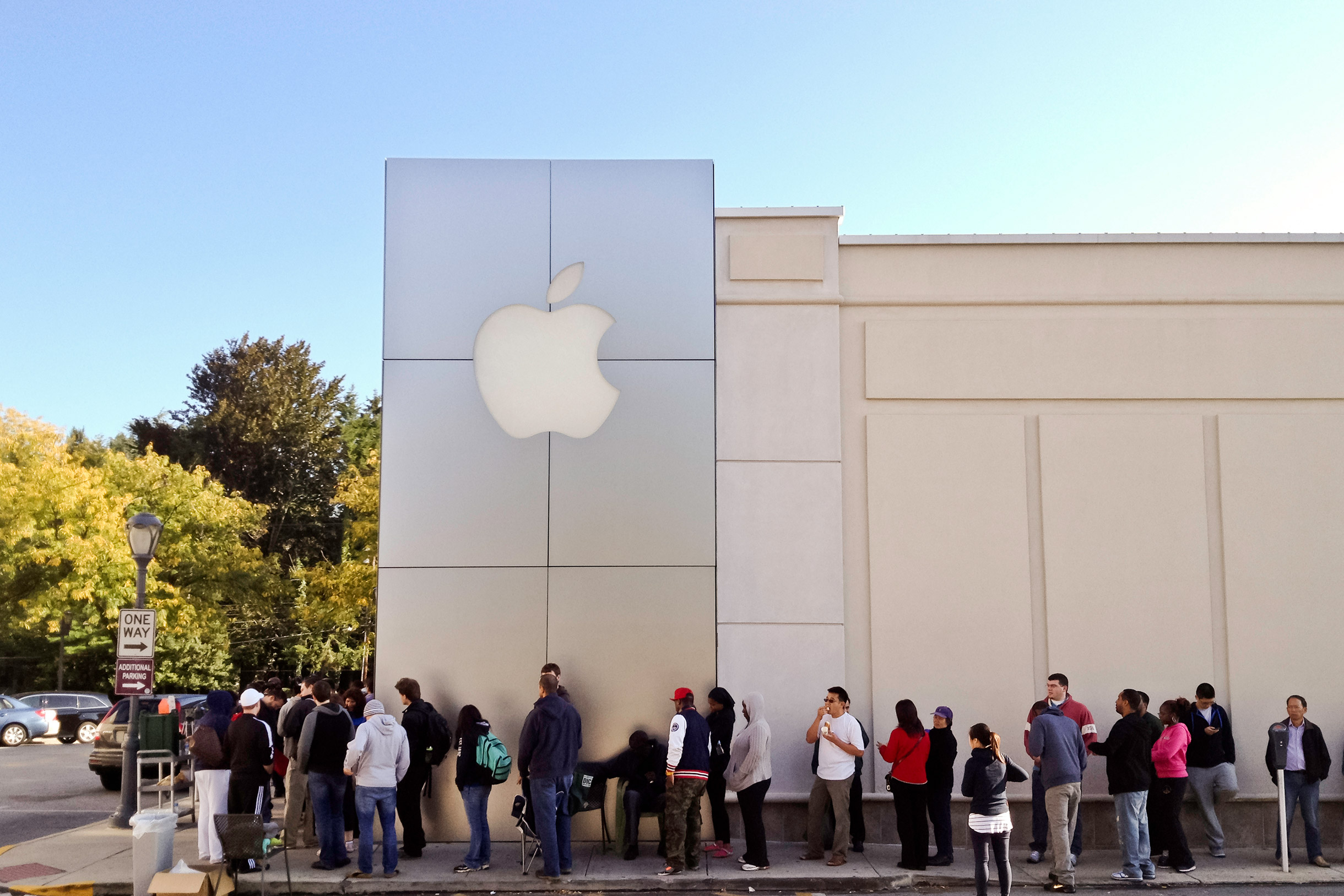Some of you may still remember the pictures of tech fans grabbing the first iPhone. Steve Jobs presented it exactly 16 years ago today. A few months later, the happy new owners were frenetically celebrated by the crowd in front of the stores.
And what happens here when a customer leaves an insurance agency with a new insurance contract? A yawning void in front of the offices. It’s about protecting yourself, not about a cell phone that can suddenly Google and play games. The very topic of security is one of our primal instincts and also one of the most important and first points according to Abraham Maslow and his pyramid of needs.
Why do I now take up such a well-known topic? Well, I had a déjà vu …
… at the New Year’s brunch.
Friends wanted to know what I do for a living now. I first answered with a counter-question: Tell me 5 things that come to mind when you think of insurance? After all, I work in a startup, but still in this industry. Steffi and Chris gave me the following answers:
“Insurance is important, but it’s too complex, confusing, expensive, and they don’t want to pay in the event of a claim.“
A few days later, at a men’s get-together, Michael said almost the same thing: “You just need insurance, but it’s too complicated and not understandable!” All this is not representative, but it’s a gut feeling that I’m sure others can confirm. No matter who I talk to, they all share exactly this feeling.
If you look for the list of the most respected professions, the insurance agent is at the bottom of the ranking and this reliably constant for years. Even politicians and advertisers, who promise a lot, probably too much, are more respected than they are. Germans are more critical of this industry than they are worldwide, where they still rank in the middle. I had found a suitable graphic in an article about this. It is a bit older, but still valid.
I have personally experienced in many other countries that insurance companies have a better reputation there. With insurances in Germany it is probably like with a root canal – nobody likes it, but if you don’t do anything, you have a problem.
Sure, there was a lot of hullabaloo in 2011 about the ribbon-cutting scandal of an insurance company that had invited its best representatives to a lavish sex party in Budapest. But there are very few black sheep among the thousands of insurance brokers in this country who really do a super job. Surely these can’t be the only reasons why their public image hangs in the balance and somehow feels bad!
I ask myself: why is that and why does the industry just accept it?
Yes, there are InsurTechs that are driving the market forward and digitization, and they’re doing it incredibly well. But that doesn’t solve the problem of image. Hardly anyone wakes up early in the morning and says to themselves: I want occupational disability insurance.
Companies that win customers through online marketing only reach customers who are actively looking for insurance. If no one is actively looking for it, it will be difficult.
The misery starts with the fact that almost all consumers (in this case even all my friends and apparently also the Gfk) do not know the difference between broker and agent! I also do not want to talk one or the other profession good or bad here. But it shows that a large part of the population knows too little about insurance.
Somehow the entire industry has a problem. Many people don’t want to admit it, but the sales figures are great and better than last year. But let’s be honest: Can we really be satisfied? Does every citizen have the urgently recommended insurance? Probably not.
Actually, everyone in the industry knows it, but you can’t change that; it’s just the way it is. Insurances have to be “sold” to the customer. Customers do not actively look for it. But what would actually happen if a commission ban on insurance were to be enforced and the livelihood of the nearly 190 thousand agents were to be taken away? There are always attempts to do this. In the Netherlands, by the way, this is common practice. Complex insurance policies have a commission ban and are brokered for a fee. In addition, the sword of Damocles still hangs over us with the question of how future younger generations will deal with the issue of insurance advice: Only online? And only if it’s as easy as subscribing to Netflix?
What have we missed in recent decades? Why is the industry’s reputation so bad in this country?
Ok. Challenge accepted!!!
I really want to get to the bottom of it, and I’m drilling down. Week by week. I can say one thing up front: The intermediary plays only a small role in the overall context. What role do consumer protection, legislators, the media or rating agencies play?
I’m interested in the actual reasons and, of course, whether anything can be changed. Not in a bullet point way, but in a really fundamental way. Anyone who would like to follow me here, very welcome.
By the way, to go back to the most respected professions: You would have to be a fireman/woman. According to statistics, they enjoy the highest reputation among the population worldwide. But what happens when they actually have to go in because there’s a fire?
The fire department extinguishes the fire, but it does not compensate for the financial damage. The insurance company does that. What kind of picture would it be if an insurance customer were celebrated in the same way as a new iPhone owner?
Contact Karl_
karl.grandl@zero-insurance.com
LinkedIn
